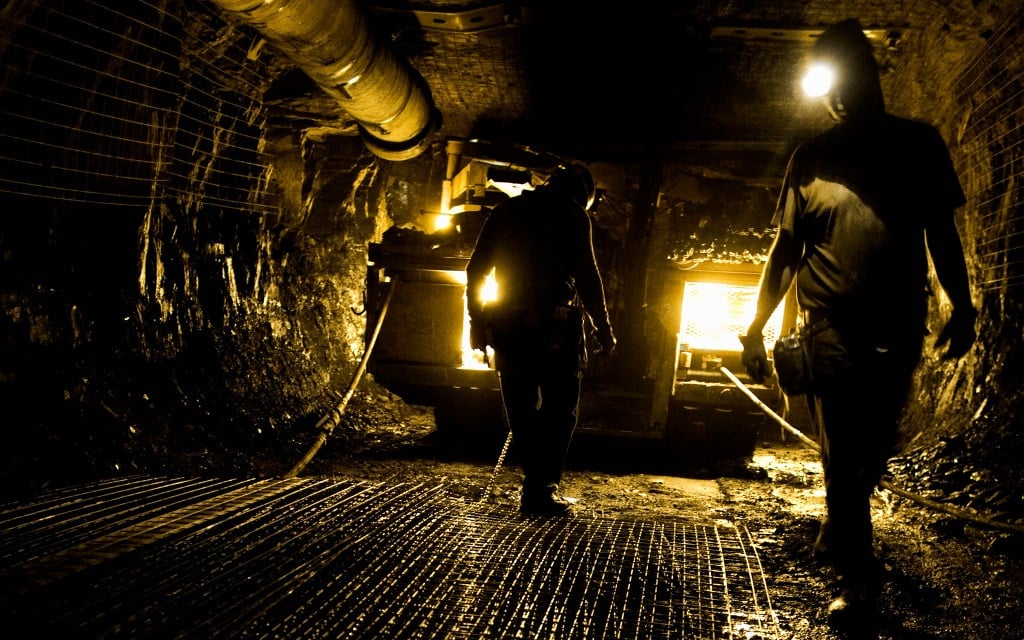
- Mineral Resources and Energy Minister Gwede Mantashe says government believes that the mining sector can contribute 12% or more to the GDP.
- The sector now contributes 8.2% to the GDP from a high of 21% in the 1980s.
- Tabling the country's new exploration strategy, pushing ahead with transformation and investing in research, are some of the interventions aimed at improving mining production.
Mineral Resources and Energy Minister Gwede Mantashe says the government believes mining can go back to contributing double digits to South Africa's GDP - but this depends on getting numerous interventions right.
Mantashe, who was speaking at the Minerals Council South Africa's AGM on Wednesday, said the country's new exploration strategy, investing in research that can help South Africa exploit more commodities and efforts to create an energy security programme for the mining sector, could push the industry's contribution to GDP to at least 12%.
In the 1980s, mining's contribution to the GDP peaked at 21% as gold production soared. But now, the sector only contributes 8.2% to the GDP, largely because of the decline in gold production.
"It is our collective responsibility to revive the sector and place it on a growth path, where it can contribute a much higher percentage to the GDP. We believe the sector can contribute 12% or more to the GDP in the near future," said Mantashe.
The Department of Mineral Resources and Energy (DMRE) announced the new exploration strategy during the Joburg Indaba in October 2020. It was due to be published in early 2021.
Other interventions include investing more into artisanal and small-scale mining, new mineral processing technologies, developing a new mining licensing system and implementing the Mining Charter of 2018, which is currently under judicial review.
Transformation will be key
The review of the Mining Charter introduced a number of black economic empowerment requirements to mining companies, including the allocation of shares to qualifying employees and host communities.
Mantashe said despite all the DMRE's regulatory instruments, the industry is still not embracing transformation and inclusiveness as the government had expected.
"It is regrettable that the sector has not fully embraced these instruments as it continues to drag us to the courts on the transformation subject, signalling resistance to transformation. Government remains relentless to the noble cause of transformation in the economy," said Mantashe.
The outgoing Minerals Council South Africa's president Mxolisi Mgojo said while there have been few disputes over some contents of the Mining Charter, the industry was not against transformation. He said the industry has performed "creditably" in this regard, as shown by the independent study it commissioned in 2019.
"[The study] showed conclusively that the industry has, on average, met or exceeded the vast majority of the targets set. And we remain committed to continuing on that road. We don't see transformation as a nice to have, but as a business imperative," said Mgojo.
He, however, added that mining companies are frustrated by frequently changing regulations.
"We cannot have a situation where the rules are changed every couple of years. We need a much more predictable and stable framework, including the Charter," said Mgojo.
As for boosting mining's contribution to the GDP, Mgojo said it has been agreed that the sector can get mining back to above 10%. He said six task teams have been established between the DMRE and Minerals Council to focus on exploration, the policy and regulatory framework, infrastructure constraints, and beneficiation, among other things. They will also work on creating a one-stop shop to unblock outstanding mining licences and rights.
"We also want to encourage much greater exploration with a target of 5% of global total exploration expenditure," added Mgojo.
Get the biggest business stories emailed to you every weekday.
Go to the Fin24 front page
